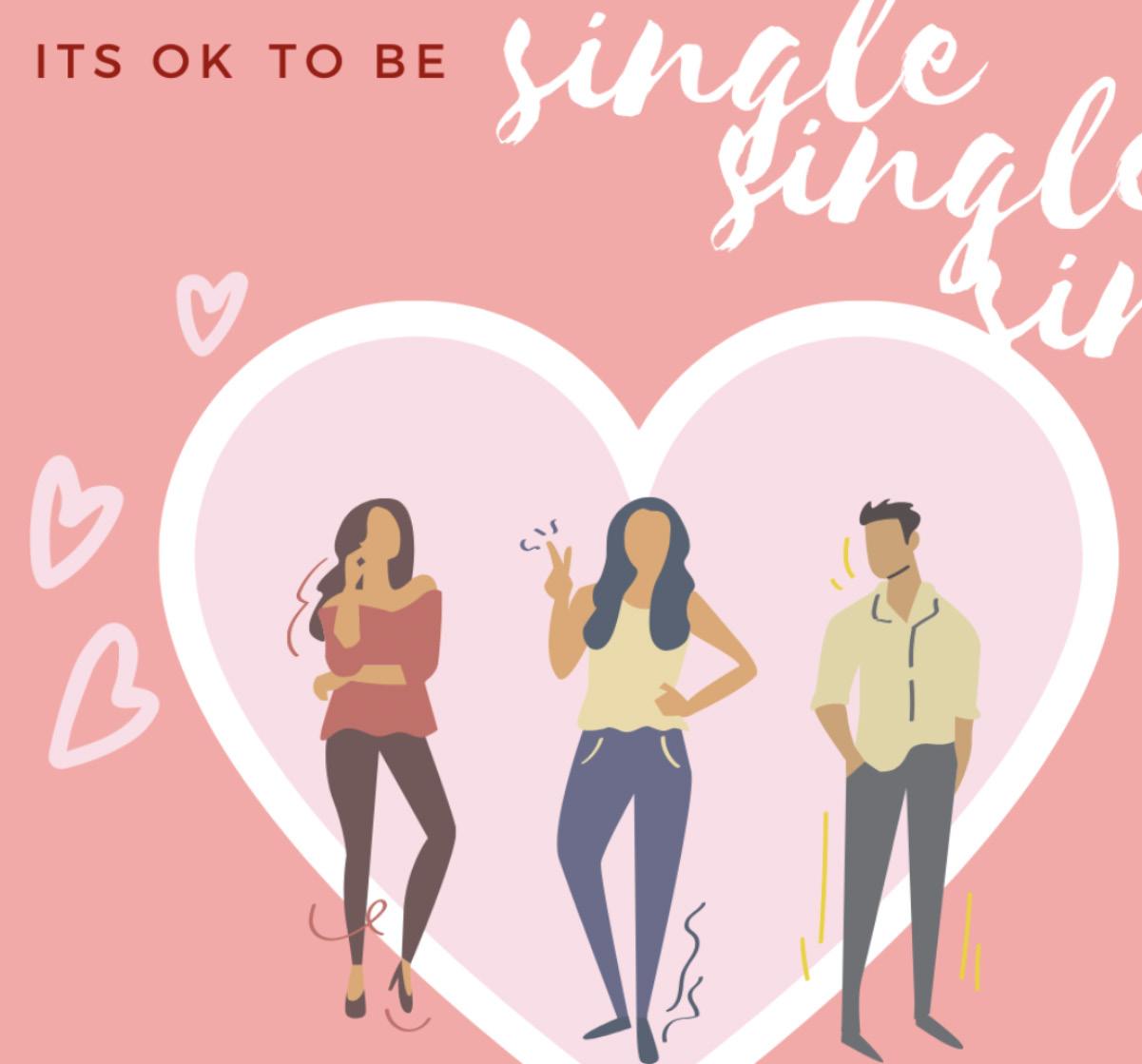
4 minute read
Dear Society, It’s Ok To Be Single
Katelyn Chang Editor-in-chiEf
February: the month of love. This month comes along as a celebration of not just platonic and familial love, but also romantic relationships.
Advertisement

February 14th, or more commonly known as Valentine’s day, paves the way for dozens of Instagram posts and stories celebrating successful relationships. But, from a single’s perspective, the day isn’t as joyful, as it’s a dreadful day that’s dedicated to showing and faunting something that you simply don’t have.
The term ‘singlism’, coined by Psychologist Dr. Bella DePaulo, refers to the stereotyping, stigmatizing, and discrimination against those who are single. But, before approaching what exactly singlism is or the harms of it, it’s important to note that although singles face hardships, it is in no way comparable to the outright discrimination that marginilized groups still face today. With that being said though, society’s laws and rules (in the United States at the least) can mean less fnancial devastation for those who aren’t single. Because of laws and policies that favor married peoples such as more social security benefts, singles often don’t see the same benefts. In a case study of this, a September 2018 U.K report’s fndings revealed that those who were single ended up paying a penalty of almost $2,600 dollars a year compared to their married counterparts. But the fnancial burden didn’t seem to end there; DePaulo found in a study between identical twins that the married twin received a 26% higher salary. Moreover, by the time singles reach the age of 65, as a 2016 Social Security Administration report fnds, they are more likely to be in poverty than other groups. These are all instances of how singles are penalized within society and face unfair hardships. And within the U.S, without having enough fnancial resources, it pushes those who lack it into deeper fnancial ruin, leading to more extensive consequences. In the case of health insurance, not being able to afford better health care because of budgetary reasons can become a choice between life and death. These are the real factors that pressure singles to choose to be in a relationship despite their possible unwillingness to.
But, discrimination against singles doesn’t stop there. Within society, singles end up facing unwanted and harmful stereotypes pushed onto them by others. Biases are often present and frame an image that those who are single are miserable, lonely, and live unhappy lives, leading to books titled How Not to Stay Single: 10 Steps to a Great Relationship and Work Out, Lose Weight, and Stop Being Single to be published. What these stereotypes continue to ignore however, is the fact that some people might not be ready for a relationship or simply choose not to be in one in the frst place. There isn’t anything inherently wrong with choosing to be single. In fact, it is the better choice rather than forcing unrequited feelings onto yourself to give one a semblance of security. On a personal level, in the 7th grade, I felt pressured to be in a relationship because of the amount of kids in my grade that were either in one, or had experienced one before. But, the fact is that I wasn’t ready for one. I wasn’t particularly looking for one, or interested for my own personal wellbeing, rather I wanted one to ft in. What this led to was a failed relationship that only lasted a pitiful seven days. Rather than gaining happiness and elation, it only ended up hurting both parties. Going into a relationship halfheartedly without genuine interest or feelings never ends well.
Even if being in a relationship, especially when younger, is considered “cool”, it’s important to recognize the things you gain by taking time and learning who you are on your own. Although a relationship can provide companionship, I’m a frm believer of the philosophy, ‘You can’t love someone until you learn to love yourself’. Taking time to discover what you want, love, and care for shouldn’t be looked down upon. Rather, it should be advocated for. Self-growth is a necessary part of growing as an adolescent. While a relationship can bring happiness, it can also make you feel trapped. Because, in a relationship, it’s not just your feelings that you have to take into consideration. And while harmful literature that shames singles can be published, so can uplifting selflove books embracing single-hood. The Unexpected Joy of Being Single highlights the freedom you gain from being able to be on your own. Author Catherine Gray revels and raves about her time as a single and being able to discover more about what she truly loves as well as what she is looking for and wanting in a partner. Now, as a senior, as I refect back on my experience in High School, I can honestly say that I’m happy that I never embarked on a long term, serious relationship. I believe that the time I had in high school as an independent person, was necessary in order to grow. A personal point of growth involved learning to love myself and fnding joy in my own company. I never hard been someone who was lonely, in the sense that I had friends to fall back on as well as my older sister. With no shortage of companionship, I had always felt as if I wasn’t ready for a relationship in the frst place, believing that it had to be an extermeley daunting task to care for another person’s emotions and mental state on top of my own. High School was just a tumultuous time to balance academics, extracurriculars, and friendships for me to even think about adding a relationship on top of those responsibilities. As I look towards the future and my experiences in college, I hope to treat the possibility of a relationship as an option or even “experiment”. I don’t anticipate falling into a hole of wanting to be in a relationship just for social appearences. If I wish to partake in a relationship, it should and will be based on my own choice, not based on societal pressures.
To me, prioritizing your own happiness outweighs conforming to society’s expectations of not being single in every instance. Wanting to be happy alone shouldn’t come with harmful stereotypes or the increased pressure to prove other people wrong. Choosing to not be in a relationship, or working on personal growth alone, should be a choice that doesn’t come with any consequences. Because, while singlism might still unfortunately exist, it’s important to remember that frankly, it’s okay to be single.









